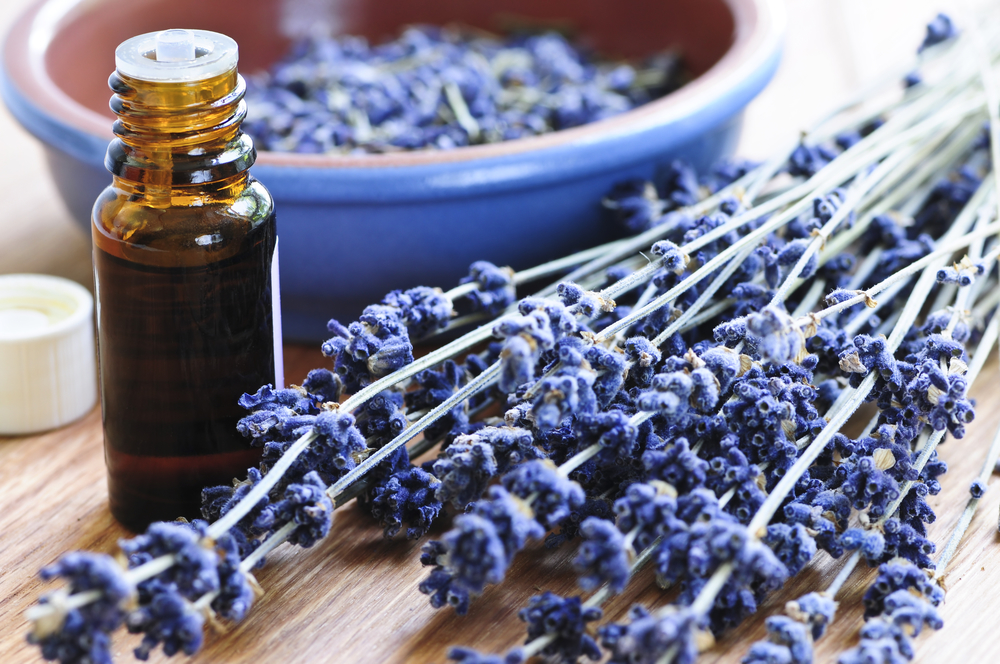By Norelle Done
I am in love with essential oils. Not just because the smells make me swoon (which is true), but because they are actually surprisingly effective.
Who knew?
I’ve been learning more and more about them, and slowly building up my own little medicine chest of essential oils. There are oils for every reason and every season, but since we’re heading into summer right now, I want to share a few of my favorites that you can start using right now.
Reducing Allergy Symptoms
Did you know that mixing some key essential oils together can significantly reduce allergy symptoms? Dab your mix on the back of your neck, behind your ears or on the bottoms of your feet to alleviate symptoms so that you can breathe easier.
For the classic Lavender-Lemon-Peppermint Blend, mix together a 7-7-6 drop ratio (7 drops each of Lavender and Lemon, plus 6 drops of Peppermint). For children under age 11, use about ⅔ as much oil, and you may want to consider Spearmint instead of Peppermint because Peppermint has menthol that affects breathing for some. Put the mixture in a roller bottle for easy application.
Bug Repellant
Make your own bug spray! A homemade bug spray with essential oils means no chemicals, skin irritants, or additives that may cause health problems down the road. Choose from either Peppermint or Cedarwood essential oils, and mix 10 drops with five drops of Lemongrass essential oil and ¾ cup of water into a small spray bottle. Each time you use it, be sure to shake the mixture so that the oils are evenly distributed.
Summer Skincare
With the warm sunshine comes the risk of sunburn, but many sunscreens have chemicals and additives that are harmful for your body to absorb. Instead, make your own all-natural sunscreen for an effective, good-for-you alternative. Mix together 10 drops of lavender essential oil, 1 tablespoon of pomegranate oil, ¾ cup of coconut oil, and 2 tablespoons of shea butter in a glass jar. Fill a saucepan with 2 inches of water over medium/low heat, and put the jar with its mixture in the saucepan. Once the ingredients are melted and combined, stir in 2 tablespoons of Zinc Oxide. Store the sunscreen in a cool place.
General Applications for Essential Oils
Here’s a quick and useful reference list for what the more common essential oils are used for during the spring and summer:
- Bergamot: Treats stress, depression and anxiety as well as skin conditions such as eczema and psoriasis. Stimulates the liver and digestive system.
- Cedarwood: Calming and spiritually uplifting. Relieves stress and anxiety and can be used to improve respiratory, skin and urinary tract issues.
- Chamomile: Powerful calming agent that also works as an antiseptic, antibiotic, and antidepressant. Some varieties are ideal for combating inflammation.
- Eucalyptus: Cooling and deodorizing characteristics to help with muscle aches/pains as well as fight migraines and fevers.
- Frankincense: Improves cellular function, promotes overall wellness and relaxation.
- Lavender: Soothing and calming for mood, can help treat skin irritations.
- Lemon/Grapefruit: Invigorating and metabolism-boosting. A calorie-free flavor addition for water.
- Marjoram: Calms hyperactivity and relieves anxiety, insomnia, and respiratory/circulatory issues.
- Patchouli: Powerful skincare and skin rejuvenation properties (excellent sunburn treatment) by promoting skin cell growth. Also reduces cellulite and bloating.
- Peppermint: Pain relief for muscle aches and pains, improves breathing, natural insect repellant.
- Ylang-Ylang: Most powerful as a calming agent for reducing nausea, headaches, blood pressure, and intestinal issues.
Things to Consider with Essential Oils
You may want more than just your selected oils to enjoy the full benefits of these natural health treatments. Here are a couple of products and ideas to help you make the most of your essential oils:
- Quality: Since essential oils come from all over the world, with a wide range of quality based on processing as well as the supplier’s standards of production, it’s important as a consumer to make informed choices about whom you choose to buy your essential oils from. Click here for a safe starting point for finding good quality essential oils (pure and no additives).
- Diffusers: Many essential oils are most effective when diffused for aromatherapy, versus direct application to the skin or hair. Some essential oils are even ill-advised for direct application, since they can cause skin irritation. Do your research and find the best diffuser (or more than one) for your needs. Here’s a great place to start.
- Labeling: Over the past few months, I’ve been expanding my essential oil collection. The trouble is, I don’t always remember what the oil is supposed to help with! So, I bought a little packet of white sticker/labels to add identifying adjectives so that I can pick up my cedarwood bottle and remember that it’s useful for calming, stress relieving, and spiritual uplifting.
- Caution: As with most health products, you should always read the warnings and side effects for the essential oils you’re using. Some are very potent, and can harm your skin if you don’t dilute them (here is a very useful guide on diluting essential oils). Others are not safe to use when pregnant. If you use some of these stronger essential oils, consider adding a warning note to your label if one doesn’t already exist.
What’s your essential oil of choice? I welcome your comments and feedback about how you use essential oils to improve your health and wellbeing in the area below.





